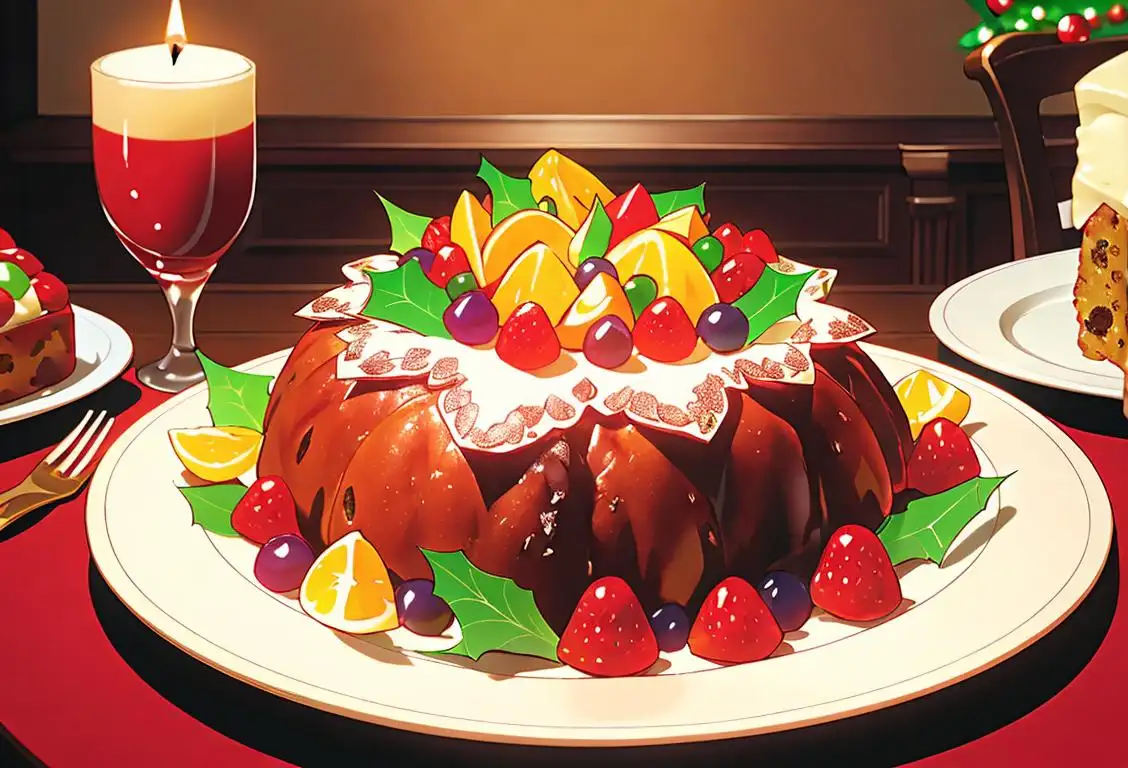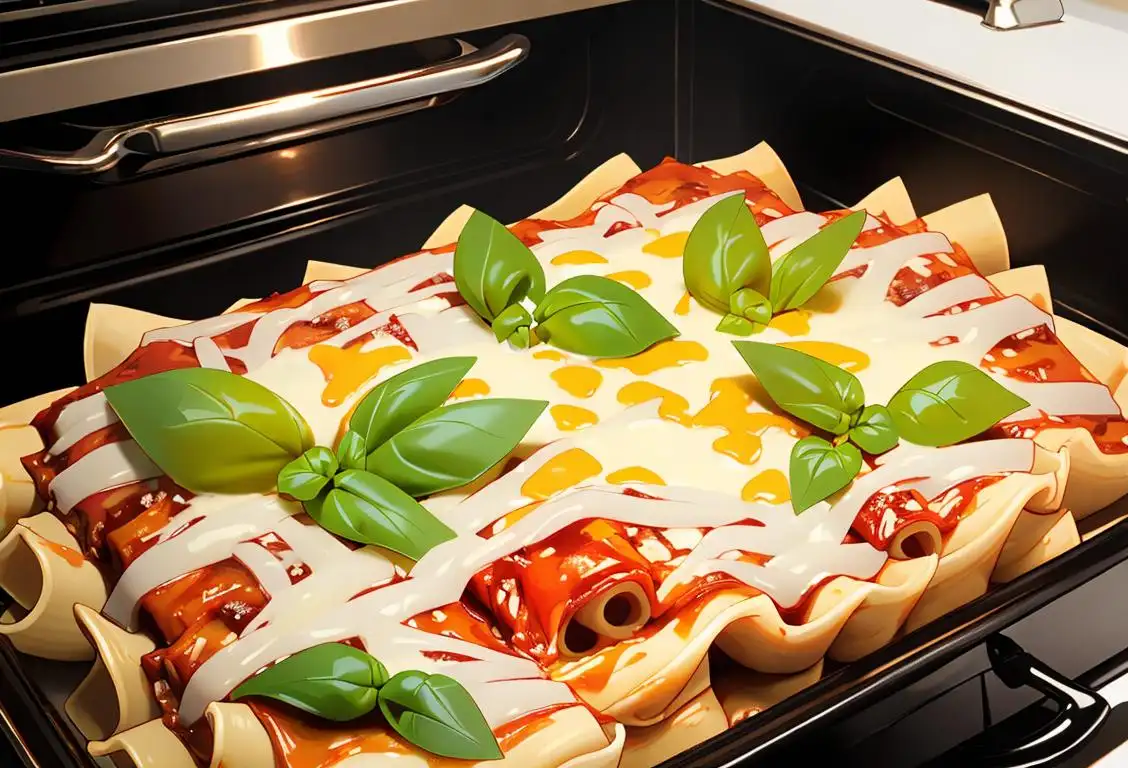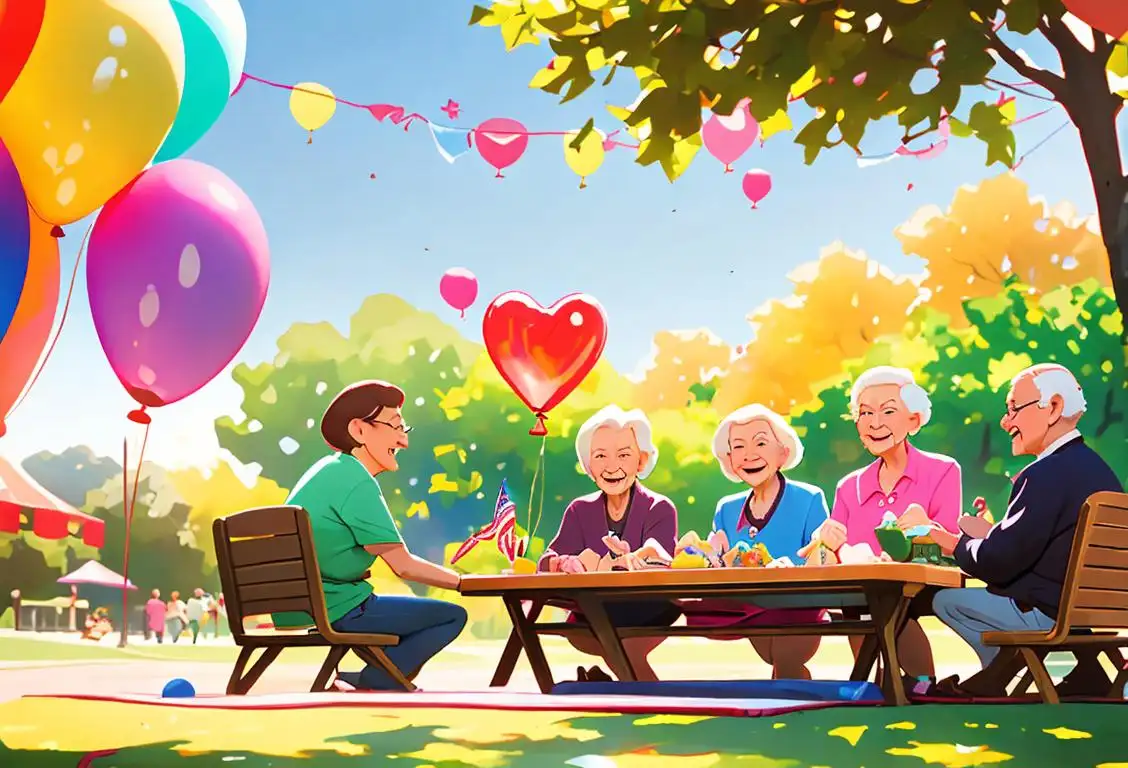National Fruitcake Day

Step aside, cookies and candies of the holiday season, make way for the real star of the dessert tray - the fruitcake! Nothing splits opinion at the holiday dinner table like the humble, yet controversial, fruitcake. Now, brace yourself for a deep dive into a journey adorned with candied fruits and nuts, as we celebrate National Fruitcake Day!
When is Fruitcake Day?
It's national fruitcake day on the 27th December.
History of National Fruitcake Day
National Fruitcake Day is crumbled into the holiday calendar on December 27th. The exact origins are cloudier than a winter's morn, with plenty of Christmas folklore wafting around. However, the day is indeed a post-Christmas nod to this unique dessert that unites and divides holiday gatherings with its presence.
Soon a Star: The Rise in Mentions
The humble fruitcake wasn't always the center of such an eclair of attention. In fact, online mentions of this day barely broke the crust until its watershed moment on December 27, 2017. Suddenly, the fruitcake was a sensation, racking up 2170 digital whispers and sealing its status as a festive phenomenon.
The Fruitcake Debate
Love it or loathe it, there's no denying that the fruitcake has seeped (or been forced) into our collective holiday consciousness. So pronounced is the fruitcake divide that it even manages to suspend standard dessert protocols. Suddenly, rum-soaked fruits and nuts baked into a dense cake is a bone of contention, opening discussions, lighthearted debates, and the occasional side-eye across the globe.
History behind the term 'Fruitcake'
12th century
The Birth of Fruitcakes
Fruitcakes have roots dating back to the 12th century when preserved fruits and honey were mixed into bread-like cakes. These early fruitcakes were made by placing chopped fruits, nuts, and spices into a mixture of honey and grain. Due to their long shelf life, fruitcakes became popular among travelers and were often carried on long journeys.
16th century
Introduction of Sugar and Spices
During the 16th century, sugar and spices became more readily available, enhancing the flavor and richness of fruitcakes. The inclusion of exotic ingredients such as citrus peel, cinnamon, and nutmeg added a touch of luxury to these sweet treats. Fruitcakes gained popularity as a symbol of wealth and were often served at special occasions like weddings and holiday celebrations.
18th century
Exploration and Discovery
As explorers sailed the world, they discovered new fruits and ingredients that could be incorporated into fruitcakes. This led to the inclusion of tropical fruits like pineapple, mango, and coconut, giving fruitcakes a more diverse and exotic flavor profile. The increased availability of these ingredients also made fruitcakes more accessible to a wider audience.
19th century
Fruitcakes in British Tradition
In the 19th century, fruitcakes gained immense popularity in British tradition. It became customary to bake fruitcakes in advance and let them age, sometimes for months or even a year. This aging process allowed the flavors to meld and mellow, resulting in a rich and moist cake. Fruitcakes became a staple of Christmas celebrations and were often shared as gifts among family and friends.
20th century
Fruitcakes in Pop Culture
The 20th century saw fruitcakes making appearances in popular culture. They became the subject of jokes, anecdotes, and even comedic sketches. The dense texture and longevity of fruitcakes led to the notion that they were indestructible and could be passed on from generation to generation. This led to the creation of the term 're-gifting' for giving away unwanted presents, often referring to fruitcakes.
21st century
Modern Variations and Adaptations
In the 21st century, fruitcakes have evolved to cater to different tastes and dietary preferences. With the rise of health-consciousness, fruitcakes now come in sugar-free, gluten-free, and vegan options. Bakers experiment with various combinations of fruits, nuts, and spirits, creating unique flavor profiles. Despite the jokes and stereotypes, fruitcakes continue to be cherished by many as a traditional and nostalgic treat.
Did you know?
Did you know that in some parts of the world, a slice of fruitcake is considered a sign of good luck for the New Year when eaten at midnight on New Year's Eve? Grab a slice if you're feeling a little superstitious!Tagged
food fun history family celebrations holidayFirst identified
27th December 2015Most mentioned on
27th December 2017Total mentions
2170Other days
Fruitcake Day
Pastry Day
Donut Donut Day
Pepperoni Pizza Day
Media Only Karachi Celebrates Pakistan Day
Gumbo Day
Nacho Day
Lasagna Day
Senior Citizens Day
Ugly Christmas Sweater Day








